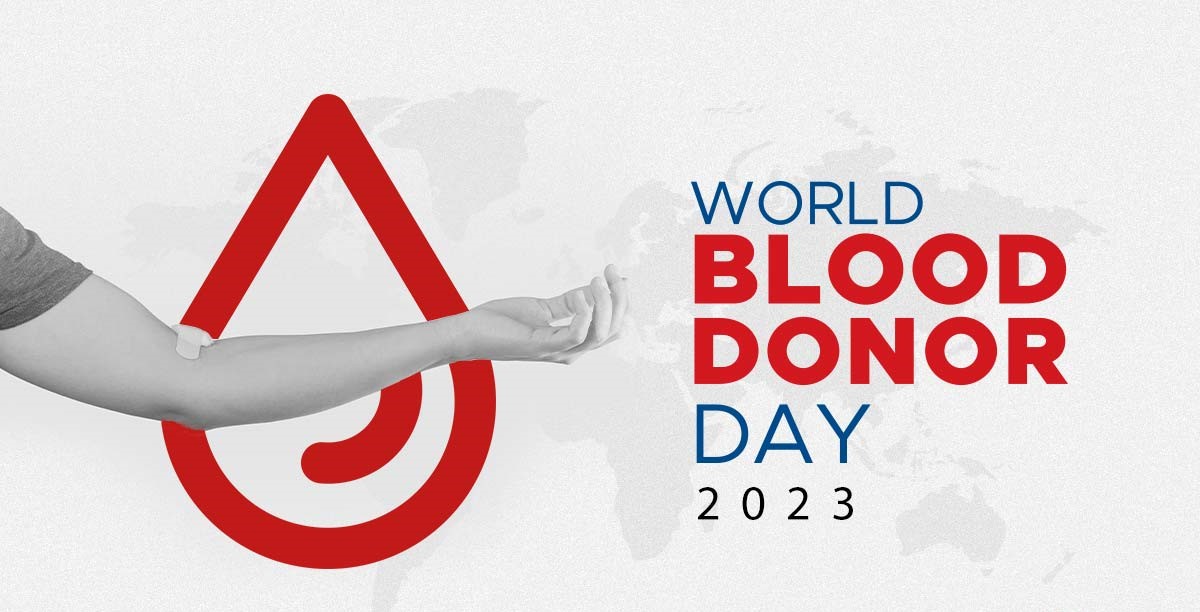Around 118.5 million units of donated blood are gathered globally each year. The World Health Organisation (WHO) estimates that India needs 2 million fewer blood units each year. Little more than 1% of Indians donate blood annually.
Donating blood is a selfless act that can make a real difference in someone’s life. Not only is it an altruistic act, but it also has numerous health benefits for the donor. From improving heart health and haemoglobin levels to reducing stress levels, donating blood can have many positive impacts on your body.
Here are 5 benefits of donating blood that you should know about
1. Blood donation can help heart health
Studies show that blood donation can help reduce the risk of cardiovascular health issues like heart attack and stroke. The National Heart, Lung and Blood Institute say that donating blood every 56 days (two weeks) is enough to improve your heart health by reducing your risk of a cardiac event by about 20%. This is significant, considering one in three adults will die of a cardiovascular-related cause.
2. Blood donation can help reduce stress levels
Studies have also shown that blood donation is a great way to reduce stress. The act of donating a pint of blood causes donations to the American Red Cross and donors generally report feeling less stressed after giving blood, as well as having increased energy levels overall.
3. A donation can help protect against cancer
If you donate blood, you are in essence donating your stem cells to be used by another person who could use the treatment or even create it themselves with their own stem cells later on! This is because the body’s stem cells are found in the bone marrow and collected from whole blood donations. These stem cells can be used in the treatment of various cancers, such as leukaemia and lymphoma, as well as other blood disorders. By donating blood, you can potentially contribute to someone's cancer treatment and provide them with a chance for recovery.
4. Blood donation helps maintain healthy iron levels
Regular blood donation can help maintain healthy iron levels in the body. Iron is an essential mineral that plays a crucial role in the production of red blood cells. However, excessive iron buildup can be harmful to the body and may increase the risk of certain health conditions. By donating blood, individuals can help regulate their iron levels and reduce the risk of iron-related disorders, such as hemochromatosis. (रकà¥à¤¤à¤µà¤°à¥à¤£à¤•à¤¤à¤¾)
5. Blood donation offers a free health check-up
When you donate blood, your blood undergoes a thorough screening process to ensure its safety for transfusion. This screening includes tests for various infectious diseases, such as HIV, hepatitis B and C, syphilis, and others. As a result, blood donation provides an opportunity for individuals to receive a free health check-up, as any potential health issues or abnormalities in the blood can be detected during this screening process. This can lead to early detection and treatment of certain diseases, benefiting both the donor and the healthcare system.

 Donating blood not only helps others in need but also brings several health benefits to the donor. It can improve heart health, reduce stress levels, potentially protect against cancer, help maintain healthy iron levels, and provide a free health check-up. Consider becoming a blood donor and making a positive impact on both yourself and others
Donating blood not only helps others in need but also brings several health benefits to the donor. It can improve heart health, reduce stress levels, potentially protect against cancer, help maintain healthy iron levels, and provide a free health check-up. Consider becoming a blood donor and making a positive impact on both yourself and others









.jpeg)




.jpeg)

.jpg)













